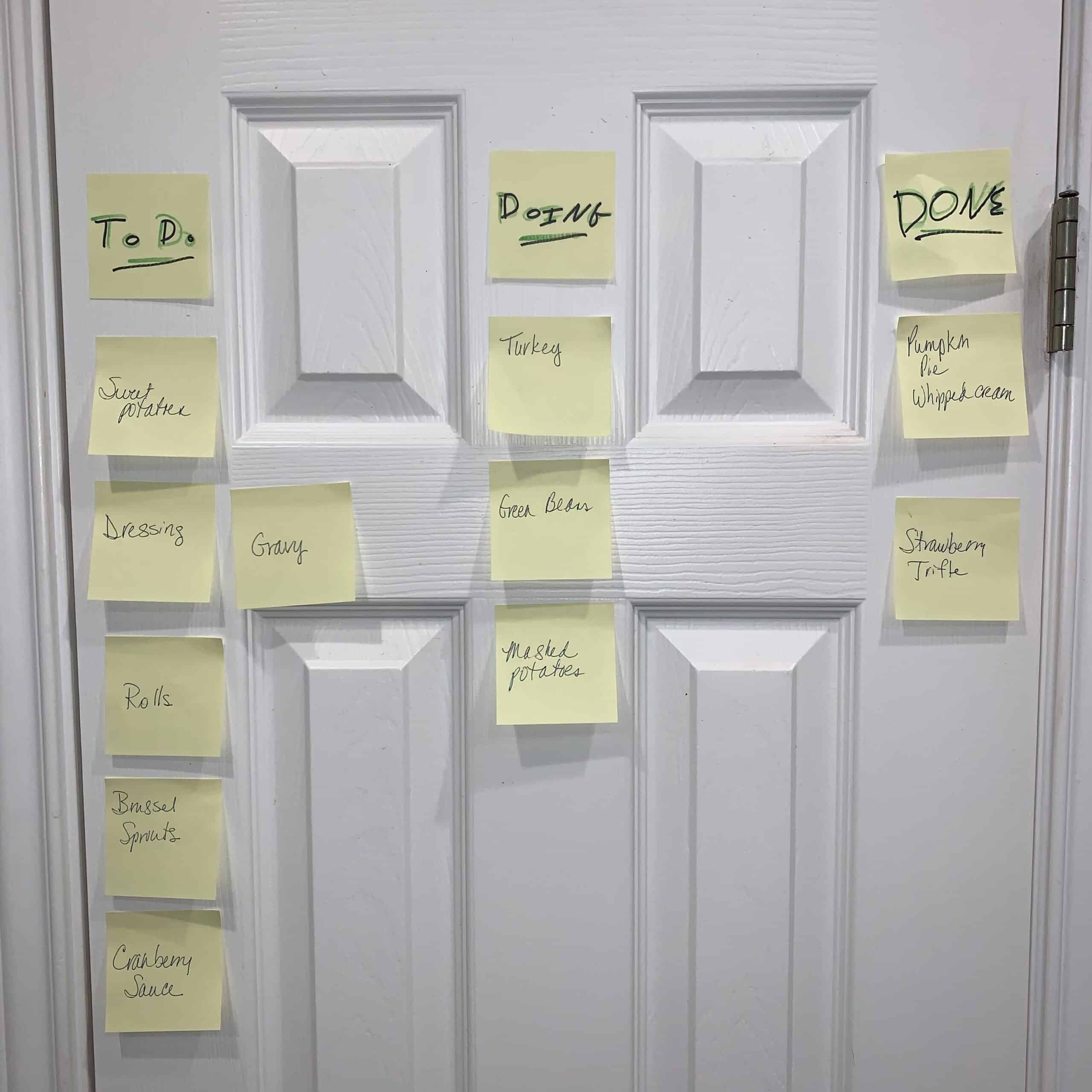I love checklists.
I also love Thanksgiving.
What could be better than combining the two?
https://youtu.be/ShRnGrZ7N8Q
As you get ready for the holidays coming up, I want to remind you that checklists are critically important for the holiday season. They’re also critically important when you find yourself in crisis.
As you can see down in the image below, this is a picture of our pantry door in our kitchen, as we were getting ready for Thanksgiving last year.

We list all the different items we’re going to be having – some brought by friends, some we make ourselves at home – and we organize them into a checklist so that we can keep up to date on where everything is, what needs to be done, what we’re doing and what’s already done. That way, we identify all the critical elements and ensure that we get everything at the table on time.
But I also use checklists with clients, in crisis response, and when we’re delivering training. That way, I’m sure that we hit the key benchmarks and elements of whatever engagement we are working on.
Checklists will help you stay better focused and on task, particularly during something as dynamic and stressful as a crisis.
Now I know many of you will think, ‘well, this should just come as second nature for us. We don’t need checklists’.
But, I firmly believe that if airplane pilots, ICU staff, and construction workers can benefit from checklists, then we can too. They’ll speed up your processes, ensure you don’t overlook things, and often remove subjectivity from your decision-making.
That’s the subject of a great book you might be familiar with – the Checklist Manifesto by Atul Gawande – who notes that even in areas that are highly specialized and uncertain, such as brain surgery, checklists can still provide enormous benefits. (He’s also written a great New Yorker article that summarizes his key arguments.)
One key concept in Gawande’s book that really jumped out at me is are three essential items that are critically important in modern healthcare because these closely map to our thinking about crisis.
First is understanding disease biology, why things happen, and how they happen. For us, that’s what we talk about in the context of risk of understanding why crises happen.
The second is finding effective therapies for when those bad things happen to treat those diseases or their underlying causes. That’s similar to us being creative and thoughtful about how we will communicate, who matters most, and thinking about the critical issues that are most important in crisis response.
The third is to ensure that the healthcare solution is delivered effectively. This might mean ensuring that someone sticks to a medication regimen or that surgery is performed safely.
Similarly, in a crisis, you want to have a checklist to help you put your plan into action effectively. It’s one thing to understand the root cause and think about these things in the abstract, but how will you deliver them effectively? That’s critically important in a crisis because without implementation, your great idea isn’t anything more than that: an idea. And we’re here to deliver results, not just ideas.
So checklists are a powerful tool and one that I think you should use too.
Have a checklist of who matters most or your chain of command to make sure you are communicating with the right people. Use one to follow the decision-making process or to evaluate your response against your mission and values. Keep track of the critical elements of your process and check that the essential tasks are getting done.
I’m sure everything in my Thanksgiving meal will ultimately get done, checklist or not. But to make sure that it all hits the table on time, hot and tasty, we need to efficiently use the oven, refrigerator, and counter space we have.
It will be the same with your crisis response: you’ll get things done eventually, but you run a greater risk of getting out of sync or missing something vital without a checklist.
And remember, the consequences of forgetting to inform the CFO that some bad news is breaking is a lot worse than forgetting the cranberry sauce on Thursday.
Have a great holiday!


